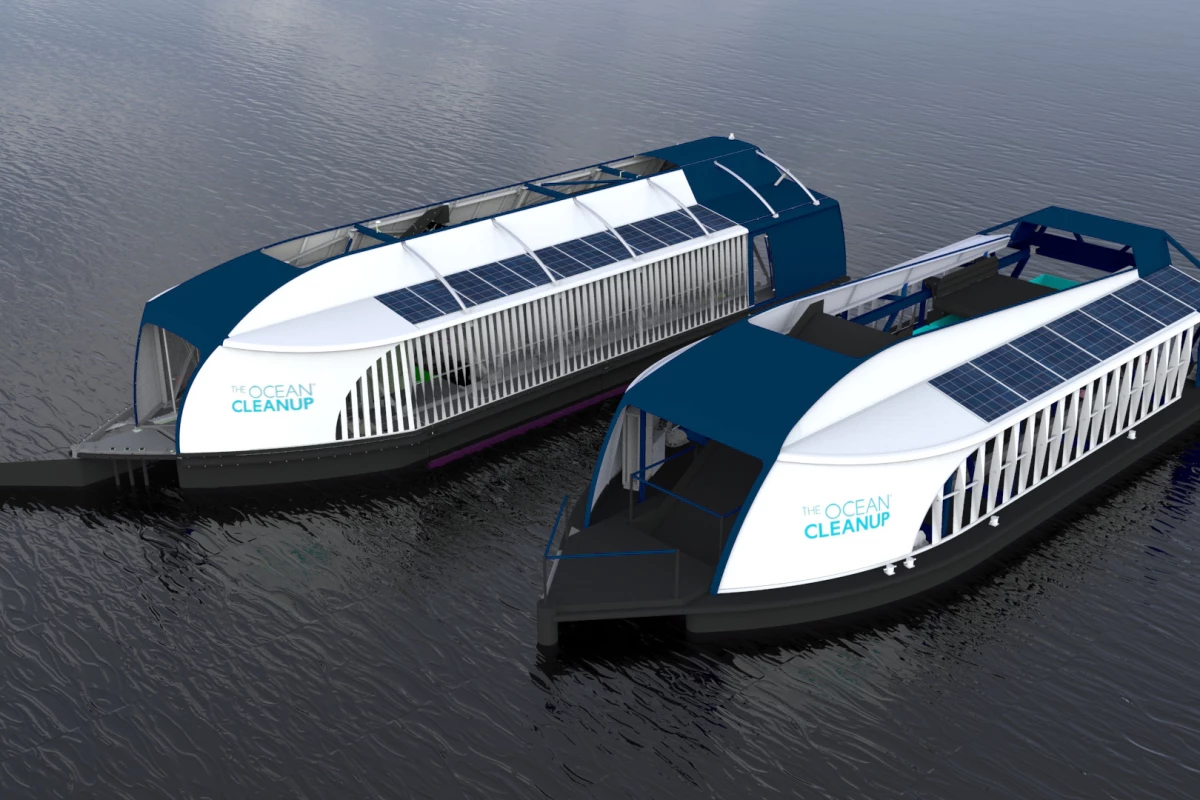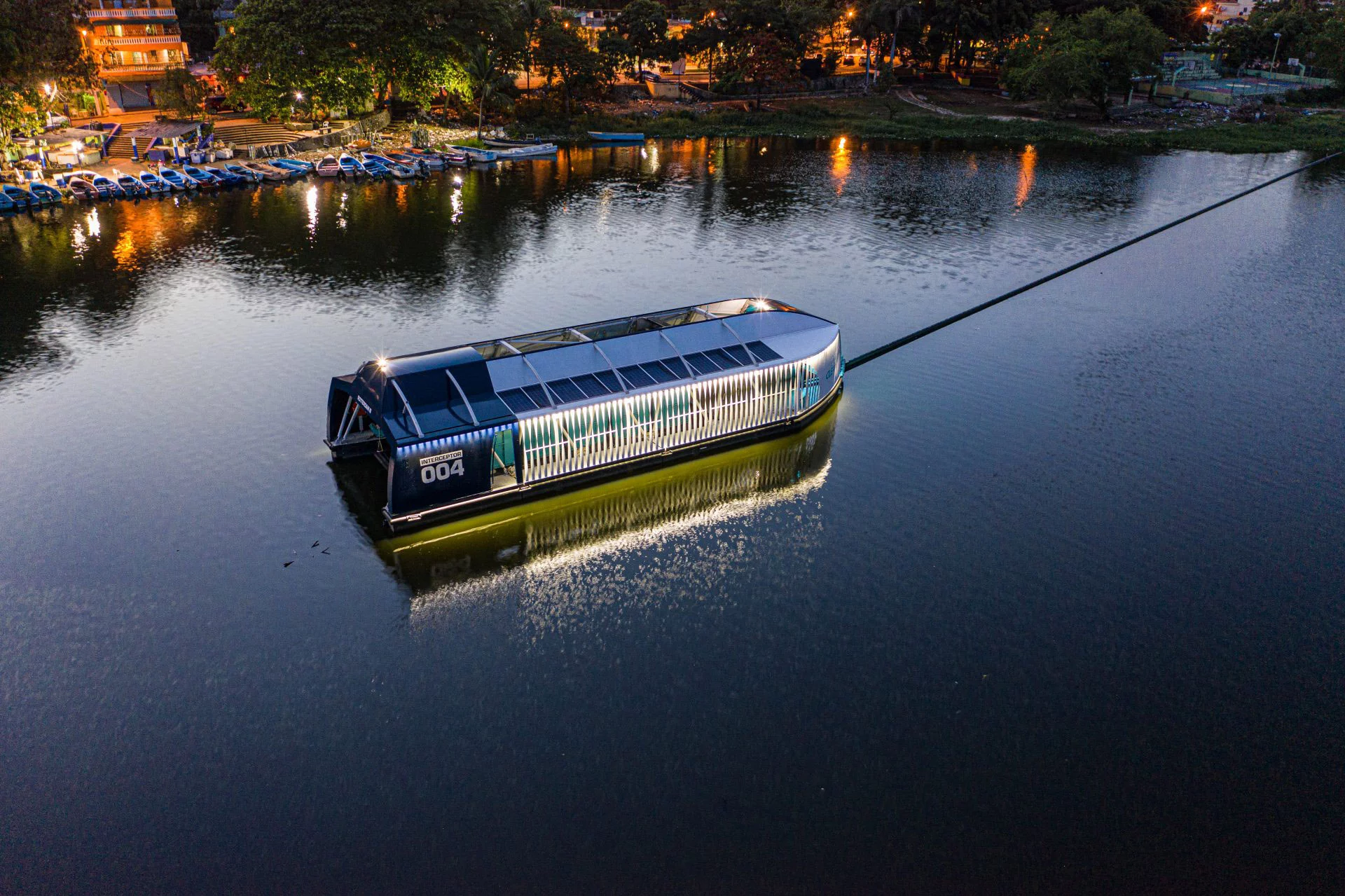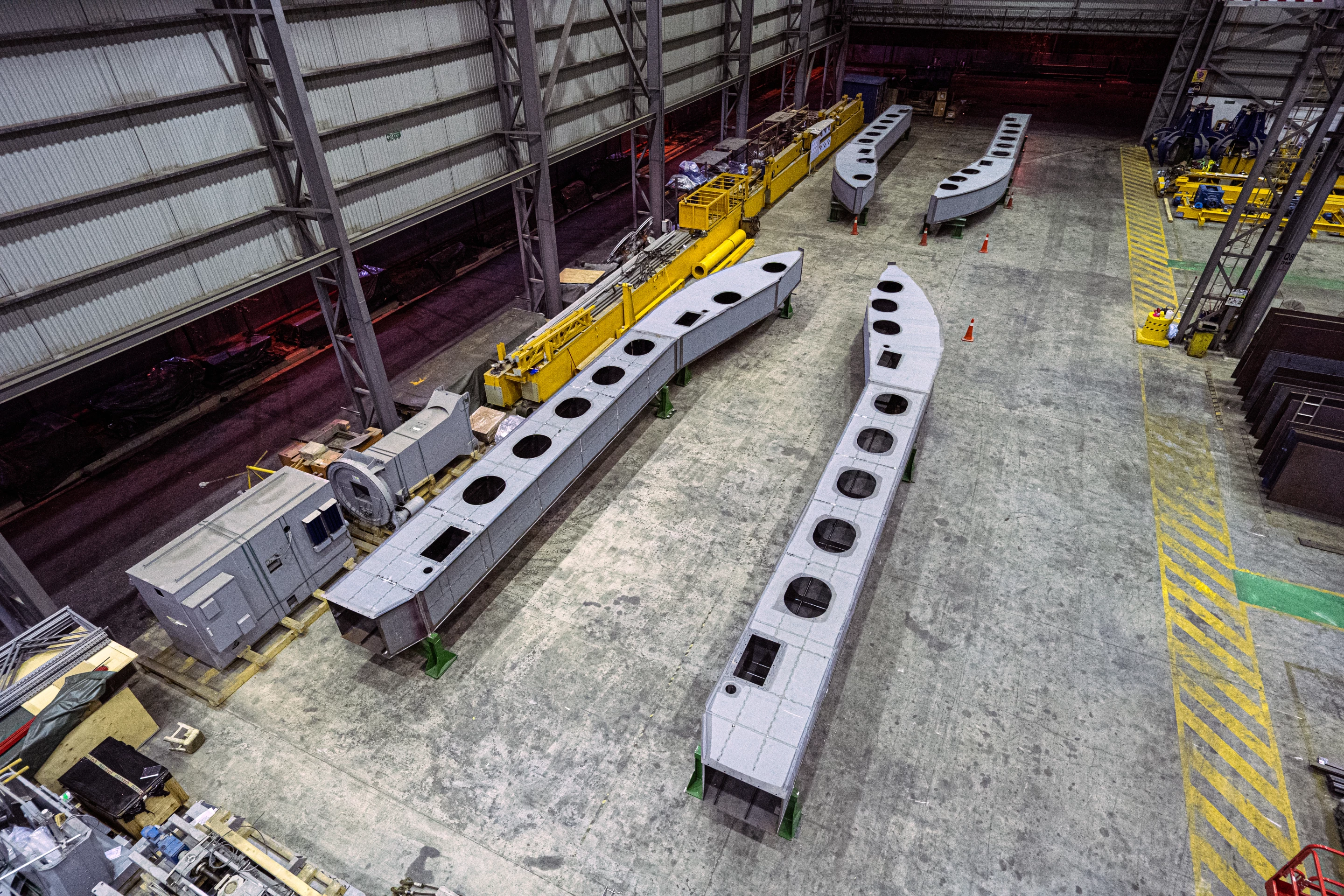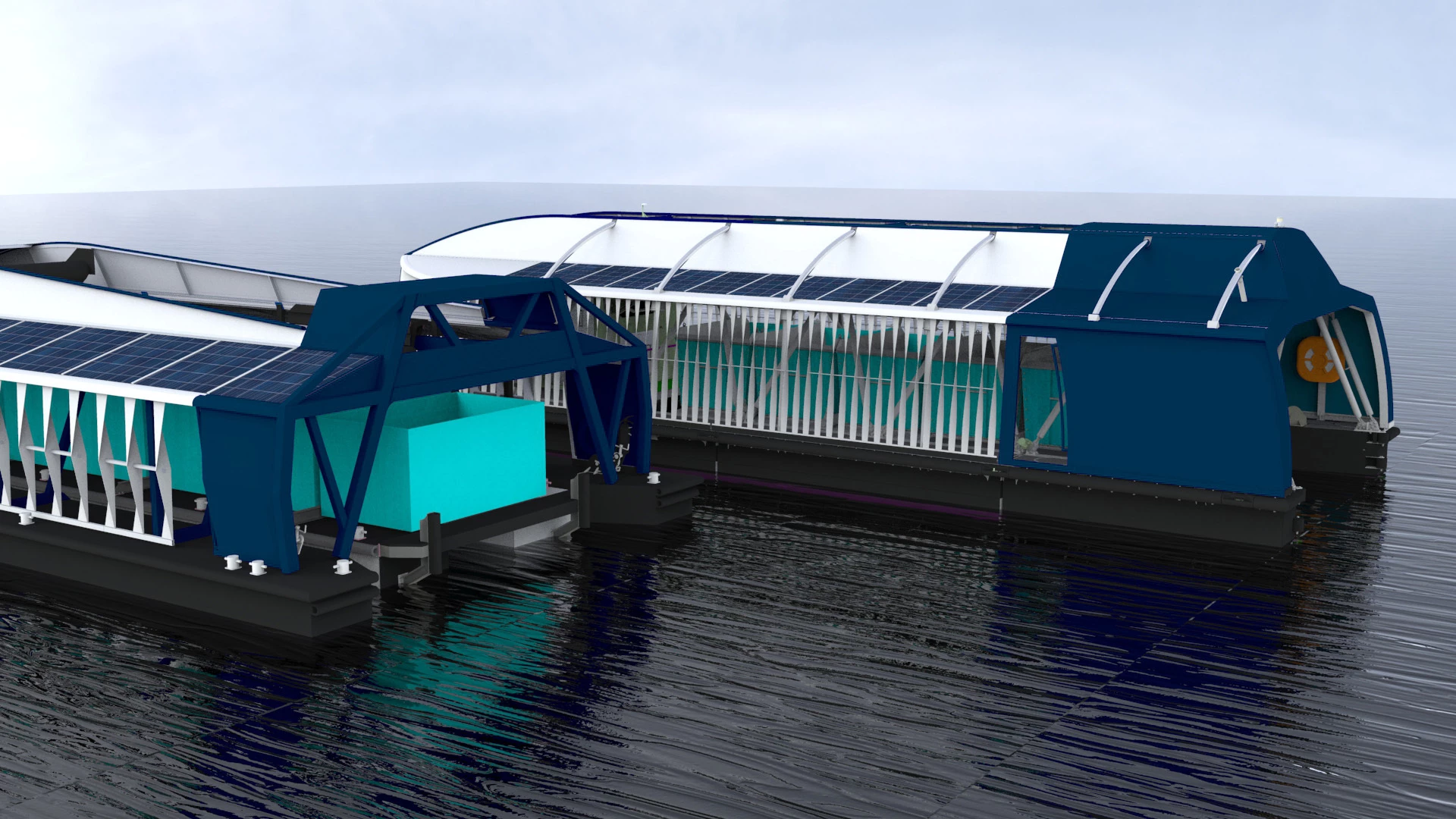Though The Ocean Cleanup is already removing plastic waste from oceans and turning it into consumer products, the non-profit also has a small number of river vessels tackling the pollution problem at its source. Now the organization is ramping up production of these Interceptors, with a thousand of the world's most heavily polluting rivers in its sights.
The Ocean Cleanup currently has three Interceptors scooping up plastic waste from rivers in Malaysia, Indonesia and the Dominican Republic. A fourth is ready to rock in Vietnam, but has suffered delays and is due to launch early next year.
The Interceptors are anchored to the riverbed and use a long floating boom to guide plastic trash into an opening to the front and onto a conveyor belt that moves the waste into a bunch on bins. Onboard sensors alert local operators when the bins need emptying, then the plastic waste is routed to local facilities for processing.
The Ocean Cleanup has used data from these pilot operations to inform the design of the next wave of Interceptors, with upgrades to the conveyor, shuttle, dumpsters and barge all being incorporated into the third generation design.

A partnership with Konecranes has now been formed to prepare for global expansion of the Interceptor project. The company's MHE-Demag facility in Klang, Malaysia, is already working on the fifth and sixth river trash removers, with completion expected in May 2021. Konecranes will then take care of manufacturing, installation and maintenance of future vessels, with local partners overseeing operations.
"At the end of a very challenging year, I am happy to see series production begin for the Interceptor," said The Ocean Cleanup CEO, Boyan Slat. "It is a necessary step for us to tackle the global flow of plastic pollution to our oceans at scale. I believe Konecranes is well-suited for the job and we look forward to seeing them build many more Interceptors in the coming years. I am thankful for their commitment to clean oceans."
Source: The Ocean Cleanup







